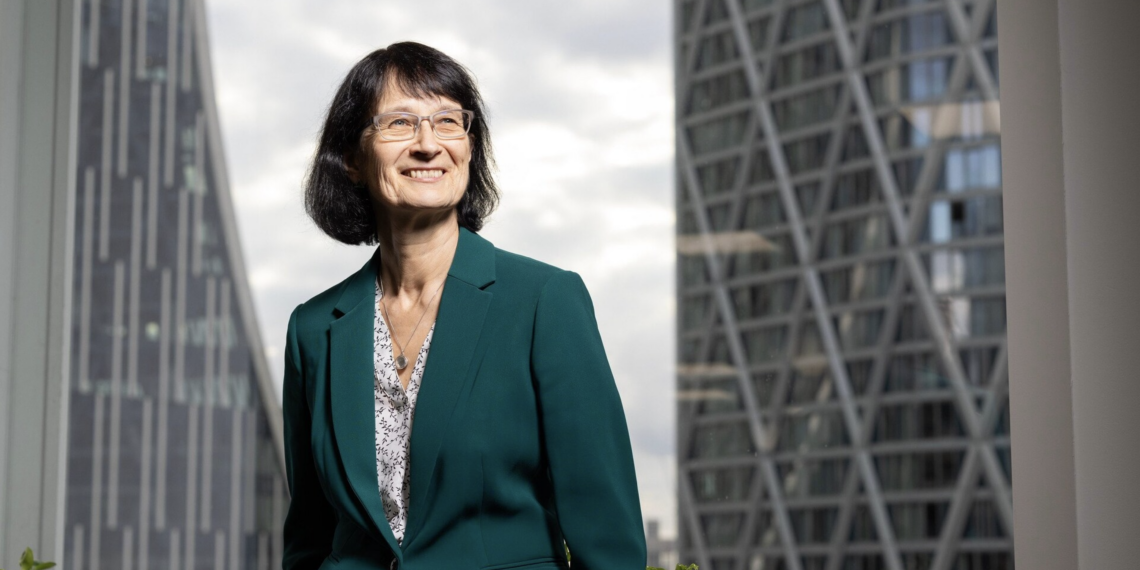by Richard Eldred, Daily Sceptic:

Head of the U.K. Health Security Agency, Dame Jenny Harries, in an interview with Paul Nuki for the Telegraph, suggests that the U.K. will adopt a more ‘Swedish’ approach to social distancing for future pandemics. Here’s an excerpt:
Dame Jenny Harries does not shake my hand as I’m ushered into her office and I wonder momentarily if this interview is going to be more difficult than anticipated.
“I’m just going to be very open,” she says in a way that only a doctor can. “The reason I haven’t shaken hands with you is, I’m just slightly under the weather. Not respiratory-wise – in other ways. I think I’ll be fine. But I’m just not not quite as buzzy as I usually am.”
TRUTH LIVES on at https://sgtreport.tv/
I relax (and check I’m not blocking the most direct route to the exit). Harries has never been known as a bundle of laughs but her vigour has never been in doubt. She’s of a generation of medics that pulled three-and-a-half-day shifts as juniors and, while most of her contemporaries have long since been put out to graze, she, at 65, remains whippet lean and A* sharp.
It’s just as well. As we meet, the highly mutated BA.2.86 ‘Pirola’ variant of COVID-19 is spreading rapidly ahead of winter, a new booster shot for the most vulnerable is being rushed out and H5N1 bird flu is causing havoc around the world. And these are just some of the near-term risks she must deal with.
Harries’s doggedness has served her well. After a career in public health spanning over 25 years – much of it spent as a diligent deputy to alpha men – she’s emerged from the widespread bureaucratic and professional wreckage of the pandemic very much on top. Now, as head of the powerful new U.K. Health Security Agency (UKHSA), she’s responsible for protecting the country from everything from viruses to chemical, biological and nuclear threats – and she’s loving every minute of it.
It was in March 2020, as the first wave of COVID-19 was sweeping Europe, that Harries first came to national prominence. “Amid the bedlam, she is in our corner, soothing the country with an effortless bedside manner,” said Vogue magazine of the then Deputy Chief Medical Officer. “Her modus operandi: rationalism tempered with empathy,” it added.
Headline writers were especially taken with Harries’s response to a question thrown at her on the eve of the first national lockdown on how lovers should navigate the coming months. Standing at a lectern next to Matt Hancock (who we can surmise was not listening), she said: “I’m clearly going to start a new career here in relationship counselling, so I will tread very carefully… If the two halves of a couple are currently in separate households, ideally they should stay in those households. The alternative might be that, for quite a significant period going forwards, they should test the strength of their relationship and decide whether one wishes to be permanently resident in another household.”
“Shack up or break up,” the papers shouted as the shutters came down the next day.
Harries is big on the power of human experience and thinks we have learnt a huge amount as a population about infection control over the past few years. So much so that if we were to face another pandemic tomorrow the U.K. would take a more Swedish approach to social distancing, she suggests. Social contact fell broadly to the same extent in both countries during the pandemic but, while stay-at-home orders were legally mandated here, in Sweden they were voluntary for the most part.
“What we saw with omicron and later waves of the pandemic, and even now, is that people are good at watching the data and they will take action themselves,” says Harries. “You can see it in footfall going down. People actually start to manage their own socialisation, and the [viral] waves flatten off and come down.”
So next time round we will be more like Sweden, changing our behaviour but without the need for legislation?
Harries is far too savvy to have the word Sweden or – as I later try – South Korea put in her mouth, but the direction of travel is clear. The key, she says, is to be transparent about the risks and build trust with the public.
“The more people trust the organisation to give them early, accurate, honest and straightforward information, then, yes, the likelihood of us moving to extreme forms of transmission management reduce all the time, whether it be for coronavirus or anything else,” she says.
Worth reading in full.



